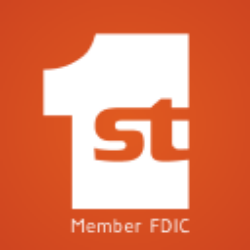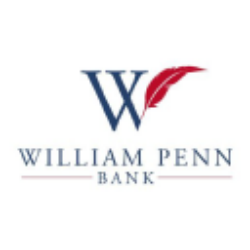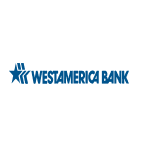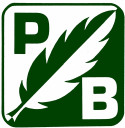TOWN
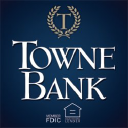
TowneBank
TOWN
(2.5)33,75 USD
0.91% ROA
7.19% ROE
16.37x PER
2.479.542.968,00 USD
14.48% DER
3.03% Yield
16.3% NPM
TowneBank Stock Analysis
TowneBank Fundamental Analysis
Fundamental analysis in stock investing is like studying the foundation of a house before buying it. It involves looking at a company's financial health, like its earnings, assets, and debts, to determine if it's a good investment based on its fundamental strength and potential for growth.
| # | Analysis | Rating |
|---|---|---|
| 1 |
Revenue Growth
This company's revenue has experienced steady growth over the last five years, indicating a reliable and prosperous financial trajectory. |
|
| 2 |
Dividend
Investors can take comfort in the company's unwavering commitment to dividends, as it has consistently distributed payouts over the past five years, ensuring a reliable income stream. |
|
| 3 |
ROE
The stock's ROE falls within an average range (9.25%), demonstrating satisfactory profitability and efficiency in utilizing shareholders' equity. |
|
| 4 |
ROA
The stock's ROA (1.06%) shows that it's doing a pretty good job at making money from its assets, making it a solid choice to invest and earn steady profits. |
|
| 5 |
PBV
The stock's PBV ratio (1.03x) indicates a justifiable valuation, presenting a compelling choice for investors seeking reasonable returns. |
|
| 6 |
DER
The stock maintains a fair debt to equity ratio (51%), indicating a reasonable balance between the money it owes and the ownership it possesses. |
|
| 7 |
Graham Number
The Graham number of this company suggests that its stock price may be undervalued, indicating a potentially attractive investment opportunity. |
|
| 8 |
Buffet Intrinsic Value
Based on Warren Buffett's formula, the company's stock appears undervalued (118), presenting an attractive investment chance with its intrinsic value surpassing the current market price. |
|
| 9 |
Net Profit Growth
Over the past five years, this company's net profit has failed to exhibit any growth, indicating a stagnant financial performance and making it a less favorable choice for potential investors. |
|
| 10 |
Assets Growth
Company has experienced no growth in revenue over the past three years, suggesting limited profitability and making it a less desirable investment opportunity. |
|
| 11 |
Dividend Growth
The company's dividend growth has shown no improvement in the past three years, making it a less attractive investment option for those seeking increasing returns. |
TowneBank Technical Analysis
Technical analysis in stock investing is like reading the patterns on a weather map to predict future weather conditions. It involves studying past stock price movements and trading volumes to make predictions about where a stock's price might go next, without necessarily looking at the company's financial health.
| # | Analysis | Recommendation |
|---|---|---|
| 1 | Awesome Oscillator | Buy |
| 2 | MACD | Buy |
| 3 | RSI | Hold |
| 4 | Stoch RSI | Sell |
TowneBank Price Chart
Financial Statements
Financial statements are like report cards for companies. They show how much money a company makes (income statement), what it owns and owes (balance sheet), and where it spends its money (cash flow statement), helping stock investors understand if a company is healthy and worth investing in.
Income Statements
An income statement for a company is like a scoreboard for its profits and losses. It shows how much money the company made (revenue) and how much it spent to make that money (expenses), helping stock investors see if a company is making a profit or not.
Revenue in stock investing is the total amount of money a company earns from its sales, and it's a key factor that investors consider to assess a company's financial performance and growth potential.
| Year | Revenue | Growth |
|---|---|---|
| 2000 | 6.576.000 | |
| 2001 | 13.868.000 | 52.58% |
| 2002 | 37.122.000 | 62.64% |
| 2003 | 42.150.000 | 11.93% |
| 2004 | 63.715.000 | 33.85% |
| 2005 | 96.533.000 | 34% |
| 2006 | 110.863.000 | 12.93% |
| 2007 | 122.321.000 | 9.37% |
| 2008 | 130.994.000 | 6.62% |
| 2009 | 163.081.000 | 19.68% |
| 2010 | 188.685.000 | 13.57% |
| 2011 | 203.955.000 | 7.49% |
| 2012 | 227.946.000 | 10.52% |
| 2013 | 233.861.000 | 2.53% |
| 2014 | 242.050.000 | 3.38% |
| 2015 | 297.184.000 | 18.55% |
| 2016 | 373.185.000 | 20.37% |
| 2017 | 448.404.000 | 16.77% |
| 2018 | 532.001.000 | 15.71% |
| 2019 | 563.240.000 | 5.55% |
| 2020 | 662.233.000 | 14.95% |
| 2021 | 678.996.000 | 2.47% |
| 2022 | 686.376.000 | 1.08% |
| 2023 | 691.456.000 | 0.73% |
| 2023 | 675.443.000 | -2.37% |
| 2024 | 1.039.016.000 | 34.99% |
Research and Development Expenses are the costs a company incurs to create and improve its products or services, which can be important for investors to evaluate a company's innovation and potential for future growth.
| Year | Research and Development Expenses | Growth |
|---|---|---|
| 2000 | 0 | |
| 2001 | 0 | 0% |
| 2002 | 0 | 0% |
| 2003 | 0 | 0% |
| 2004 | 0 | 0% |
| 2005 | 0 | 0% |
| 2006 | 0 | 0% |
| 2007 | 0 | 0% |
| 2008 | 0 | 0% |
| 2009 | 0 | 0% |
| 2010 | 0 | 0% |
| 2011 | 0 | 0% |
| 2012 | 0 | 0% |
| 2013 | 0 | 0% |
| 2014 | 0 | 0% |
| 2015 | 0 | 0% |
| 2016 | 0 | 0% |
| 2017 | 0 | 0% |
| 2018 | 0 | 0% |
| 2019 | 0 | 0% |
| 2020 | 0 | 0% |
| 2021 | 0 | 0% |
| 2022 | 0 | 0% |
| 2023 | 0 | 0% |
| 2023 | 0 | 0% |
| 2024 | 0 | 0% |
General and Administrative Expenses are the costs a company incurs to run its day-to-day operations, such as office rent, salaries, and utilities, which investors consider to understand a company's overall efficiency and management effectiveness.
| Year | General and Administrative Expenses | Growth |
|---|---|---|
| 2000 | 0 | |
| 2001 | 12.682.000 | 100% |
| 2002 | 15.593.000 | 18.67% |
| 2003 | 17.807.000 | 12.43% |
| 2004 | 27.364.000 | 34.93% |
| 2005 | 40.553.000 | 32.52% |
| 2006 | 46.285.000 | 12.38% |
| 2007 | 50.083.000 | 7.58% |
| 2008 | 59.767.000 | 16.2% |
| 2009 | 61.818.000 | 3.32% |
| 2010 | 69.085.000 | 10.52% |
| 2011 | 79.558.000 | 13.16% |
| 2012 | 104.152.000 | 23.61% |
| 2013 | 113.346.000 | 8.11% |
| 2014 | 115.071.000 | 1.5% |
| 2015 | 133.633.000 | 13.89% |
| 2016 | 167.269.000 | 20.11% |
| 2017 | 196.404.000 | 14.83% |
| 2018 | 232.881.000 | 15.66% |
| 2019 | 249.222.000 | 6.56% |
| 2020 | 265.979.000 | 6.3% |
| 2021 | 278.760.000 | 4.58% |
| 2022 | 263.918.000 | -5.62% |
| 2023 | 282.884.000 | 6.7% |
| 2023 | 289.829.000 | 2.4% |
| 2024 | 297.040.000 | 2.43% |
EBITDA stands for Earnings Before Interest, Taxes, Depreciation, and Amortization. It is a measure that helps stock investors analyze a company's profitability by looking at its earnings without considering certain expenses. This helps to get a clearer picture of the company's financial performance and its ability to generate cash flow.
| Year | EBITDA | Growth |
|---|---|---|
| 2000 | 1.218.000 | |
| 2001 | 20.999.000 | 94.2% |
| 2002 | 0 | 0% |
| 2003 | 0 | 0% |
| 2004 | 28.118.000 | 100% |
| 2005 | 34.133.000 | 17.62% |
| 2006 | 0 | 0% |
| 2007 | 41.231.000 | 100% |
| 2008 | 41.889.000 | 1.57% |
| 2009 | 48.143.000 | 12.99% |
| 2010 | 53.156.000 | 9.43% |
| 2011 | 56.520.000 | 5.95% |
| 2012 | 65.145.000 | 13.24% |
| 2013 | 73.885.000 | 11.83% |
| 2014 | 77.009.000 | 4.06% |
| 2015 | 108.688.000 | 29.15% |
| 2016 | 121.465.000 | 10.52% |
| 2017 | 170.553.000 | 28.78% |
| 2018 | 200.725.000 | 15.03% |
| 2019 | 205.641.000 | 2.39% |
| 2020 | 230.394.000 | 10.74% |
| 2021 | 310.961.000 | 25.91% |
| 2022 | 265.748.000 | -17.01% |
| 2023 | 251.688.000 | -5.59% |
| 2023 | 220.445.000 | -14.17% |
| 2024 | -14.000.000 | 1674.61% |
Gross profit is the money a company makes from selling its products or services after subtracting the cost of producing or providing them, and it is an important measure for investors to understand a company's profitability.
| Year | Gross Profit | Growth |
|---|---|---|
| 2000 | 6.576.000 | |
| 2001 | 13.868.000 | 52.58% |
| 2002 | 37.122.000 | 62.64% |
| 2003 | 42.150.000 | 11.93% |
| 2004 | 63.715.000 | 33.85% |
| 2005 | 96.533.000 | 34% |
| 2006 | 110.863.000 | 12.93% |
| 2007 | 122.321.000 | 9.37% |
| 2008 | 130.994.000 | 6.62% |
| 2009 | 163.081.000 | 19.68% |
| 2010 | 188.685.000 | 13.57% |
| 2011 | 203.955.000 | 7.49% |
| 2012 | 227.946.000 | 10.52% |
| 2013 | 233.861.000 | 2.53% |
| 2014 | 242.050.000 | 3.38% |
| 2015 | 297.184.000 | 18.55% |
| 2016 | 373.185.000 | 20.37% |
| 2017 | 448.404.000 | 16.77% |
| 2018 | 532.001.000 | 15.71% |
| 2019 | 563.240.000 | 5.55% |
| 2020 | 662.233.000 | 14.95% |
| 2021 | 678.996.000 | 2.47% |
| 2022 | 677.139.000 | -0.27% |
| 2023 | 691.456.000 | 2.07% |
| 2023 | 941.584.000 | 26.56% |
| 2024 | 1.043.424.000 | 9.76% |
Net income in stock investing is like the money a company actually gets to keep as profit after paying all its bills, and it's an important measure to understand how well a company is doing financially.
| Year | Net Profit | Growth |
|---|---|---|
| 2000 | 1.218.000 | |
| 2001 | 2.637.000 | 53.81% |
| 2002 | 5.501.000 | 52.06% |
| 2003 | 6.620.000 | 16.9% |
| 2004 | 11.280.000 | 41.31% |
| 2005 | 17.680.000 | 36.2% |
| 2006 | 21.786.000 | 18.85% |
| 2007 | 23.259.000 | 6.33% |
| 2008 | 23.894.000 | 2.66% |
| 2009 | 26.759.000 | 10.71% |
| 2010 | 30.276.000 | 11.62% |
| 2011 | 33.321.000 | 9.14% |
| 2012 | 37.931.000 | 12.15% |
| 2013 | 41.762.000 | 9.17% |
| 2014 | 42.169.000 | 0.97% |
| 2015 | 62.382.000 | 32.4% |
| 2016 | 67.250.000 | 7.24% |
| 2017 | 87.663.000 | 23.29% |
| 2018 | 133.793.000 | 34.48% |
| 2019 | 138.783.000 | 3.6% |
| 2020 | 145.535.000 | 4.64% |
| 2021 | 215.383.000 | 32.43% |
| 2022 | 188.987.000 | -13.97% |
| 2023 | 179.448.000 | -5.32% |
| 2023 | 153.715.000 | -16.74% |
| 2024 | 171.424.000 | 10.33% |
EPS, or earnings per share, is a measure that shows how much profit a company has earned for each outstanding share of its stock, and it is important for stock investors as it helps understand the profitability of a company and compare it with other companies in the market.
| Year | Earning per Share (EPS) | Growth |
|---|---|---|
| 2000 | 0 | |
| 2001 | 0 | 0% |
| 2002 | 0 | 0% |
| 2003 | 0 | 0% |
| 2004 | 1 | 0% |
| 2005 | 1 | 0% |
| 2006 | 1 | 0% |
| 2007 | 1 | 0% |
| 2008 | 1 | 0% |
| 2009 | 1 | 0% |
| 2010 | 1 | 0% |
| 2011 | 1 | 0% |
| 2012 | 1 | 100% |
| 2013 | 1 | 0% |
| 2014 | 1 | 0% |
| 2015 | 1 | 0% |
| 2016 | 1 | 0% |
| 2017 | 1 | 0% |
| 2018 | 2 | 0% |
| 2019 | 2 | 0% |
| 2020 | 2 | 50% |
| 2021 | 3 | 0% |
| 2022 | 3 | 0% |
| 2023 | 2 | 0% |
| 2023 | 2 | 0% |
| 2024 | 2 | 0% |
Cashflow Statements
Cashflow statements show the movement of money in and out of a company, helping stock investors understand how much money a company makes and spends. By examining cashflow statements, investors can assess if a company is generating enough cash to pay its bills, invest in growth, and provide returns to stockholders.
Free cash flow is the leftover cash that a company generates after covering its operating expenses and capital expenditures, which is important for stock investors as it shows how much money a company has available to invest in growth, pay dividends, or reduce debt.
| Year | Free Cashflow | Growth |
|---|---|---|
| 2001 | -16.713.000 | |
| 2002 | -23.897.000 | 30.06% |
| 2003 | 33.310.000 | 171.74% |
| 2004 | -5.182.000 | 742.8% |
| 2005 | 15.953.000 | 132.48% |
| 2006 | 61.252.000 | 73.96% |
| 2007 | 6.416.000 | -854.68% |
| 2008 | 25.927.000 | 75.25% |
| 2009 | -38.262.000 | 167.76% |
| 2010 | 21.031.000 | 281.93% |
| 2011 | -21.681.000 | 197% |
| 2012 | 19.727.000 | 209.91% |
| 2013 | 96.371.000 | 79.53% |
| 2014 | 32.595.000 | -195.66% |
| 2015 | 57.772.000 | 43.58% |
| 2016 | 166.984.000 | 65.4% |
| 2017 | 111.323.000 | -50% |
| 2018 | 286.503.000 | 61.14% |
| 2019 | -52.752.000 | 643.11% |
| 2020 | 82.100.000 | 164.25% |
| 2021 | 487.618.000 | 83.16% |
| 2022 | 363.219.000 | -34.25% |
| 2023 | 117.169.000 | -210% |
| 2023 | 90.443.000 | -29.55% |
| 2024 | 20.068.000 | -350.68% |
Operating cash flow represents the cash generated or consumed by a company's day-to-day operations, excluding external investing or financing activities, and is crucial for stock investors as it shows how much cash a company is generating from its core business operations.
| Year | Operating Cashflow | Growth |
|---|---|---|
| 2001 | -16.713.000 | |
| 2002 | -13.544.000 | -23.4% |
| 2003 | 47.081.000 | 128.77% |
| 2004 | 8.593.000 | -447.9% |
| 2005 | 29.102.000 | 70.47% |
| 2006 | 69.205.000 | 57.95% |
| 2007 | 19.459.000 | -255.65% |
| 2008 | 34.988.000 | 44.38% |
| 2009 | -21.439.000 | 263.2% |
| 2010 | 46.754.000 | 145.85% |
| 2011 | 5.622.000 | -731.63% |
| 2012 | 40.336.000 | 86.06% |
| 2013 | 115.541.000 | 65.09% |
| 2014 | 44.521.000 | -159.52% |
| 2015 | 81.087.000 | 45.09% |
| 2016 | 185.039.000 | 56.18% |
| 2017 | 124.768.000 | -48.31% |
| 2018 | 307.350.000 | 59.41% |
| 2019 | -16.035.000 | 2016.74% |
| 2020 | 127.888.000 | 112.54% |
| 2021 | 518.823.000 | 75.35% |
| 2022 | 415.505.000 | -24.87% |
| 2023 | 161.304.000 | -157.59% |
| 2023 | 104.441.000 | -54.45% |
| 2024 | 25.158.000 | -315.14% |
Capex, short for capital expenditures, refers to the money a company spends on acquiring or upgrading tangible assets like buildings, equipment, or technology, which is important for stock investors as it indicates how much a company is investing in its infrastructure to support future growth and profitability.
| Year | Capital Expenditure | Growth |
|---|---|---|
| 2001 | 0 | |
| 2002 | 10.353.000 | 100% |
| 2003 | 13.771.000 | 24.82% |
| 2004 | 13.775.000 | 0.03% |
| 2005 | 13.149.000 | -4.76% |
| 2006 | 7.953.000 | -65.33% |
| 2007 | 13.043.000 | 39.02% |
| 2008 | 9.061.000 | -43.95% |
| 2009 | 16.823.000 | 46.14% |
| 2010 | 25.723.000 | 34.6% |
| 2011 | 27.303.000 | 5.79% |
| 2012 | 20.609.000 | -32.48% |
| 2013 | 19.170.000 | -7.51% |
| 2014 | 11.926.000 | -60.74% |
| 2015 | 23.315.000 | 48.85% |
| 2016 | 18.055.000 | -29.13% |
| 2017 | 13.445.000 | -34.29% |
| 2018 | 20.847.000 | 35.51% |
| 2019 | 36.717.000 | 43.22% |
| 2020 | 45.788.000 | 19.81% |
| 2021 | 31.205.000 | -46.73% |
| 2022 | 52.286.000 | 40.32% |
| 2023 | 44.135.000 | -18.47% |
| 2023 | 13.998.000 | -215.3% |
| 2024 | 5.090.000 | -175.01% |
Balance Sheet
Balance sheets provide a snapshot of a company's financial health and its assets (such as cash, inventory, and property) and liabilities (like debts and obligations) at a specific point in time. For stock investors, balance sheets help assess the company's overall worth and evaluate its ability to meet financial obligations and support future growth.
Equity refers to the ownership interest or stake that shareholders have in a company, representing their claim on its assets and earnings after all debts and liabilities are paid.
| Year | Equity | Growth |
|---|---|---|
| 2000 | 37.057.000 | |
| 2001 | 41.162.000 | 9.97% |
| 2002 | 70.841.000 | 41.9% |
| 2003 | 80.641.000 | 12.15% |
| 2004 | 188.521.000 | 57.22% |
| 2005 | 211.986.000 | 11.07% |
| 2006 | 230.017.000 | 7.84% |
| 2007 | 256.856.000 | 10.45% |
| 2008 | 419.671.000 | 38.8% |
| 2009 | 464.321.000 | 9.62% |
| 2010 | 499.512.000 | 7.05% |
| 2011 | 520.489.000 | 4.03% |
| 2012 | 559.879.000 | 7.04% |
| 2013 | 585.318.000 | 4.35% |
| 2014 | 618.276.000 | 5.33% |
| 2015 | 820.194.000 | 24.62% |
| 2016 | 1.086.558.000 | 24.51% |
| 2017 | 1.142.505.000 | 4.9% |
| 2018 | 1.538.420.000 | 25.74% |
| 2019 | 1.653.694.000 | 6.97% |
| 2020 | 1.783.828.000 | 7.3% |
| 2021 | 1.916.174.000 | 6.91% |
| 2022 | 1.888.757.000 | -1.45% |
| 2023 | 1.984.212.000 | 4.81% |
| 2023 | 2.055.878.000 | 3.49% |
| 2024 | 2.089.315.999 | 1.6% |
Assets represent the valuable resources that a company owns, such as cash, inventory, property, and equipment, and understanding a company's assets helps investors assess its value and potential for generating future profits.
| Year | Assets | Growth |
|---|---|---|
| 2000 | 384.818.000 | |
| 2001 | 559.507.000 | 31.22% |
| 2002 | 763.899.000 | 26.76% |
| 2003 | 931.873.000 | 18.03% |
| 2004 | 1.448.359.000 | 35.66% |
| 2005 | 1.803.182.000 | 19.68% |
| 2006 | 2.194.585.000 | 17.83% |
| 2007 | 2.501.078.000 | 12.25% |
| 2008 | 3.133.578.000 | 20.18% |
| 2009 | 3.606.451.000 | 13.11% |
| 2010 | 3.871.018.000 | 6.83% |
| 2011 | 4.081.770.000 | 5.16% |
| 2012 | 4.405.923.000 | 7.36% |
| 2013 | 4.672.997.000 | 5.72% |
| 2014 | 4.982.485.000 | 6.21% |
| 2015 | 6.296.574.000 | 20.87% |
| 2016 | 7.973.915.000 | 21.04% |
| 2017 | 8.522.176.000 | 6.43% |
| 2018 | 11.163.030.000 | 23.66% |
| 2019 | 11.947.663.000 | 6.57% |
| 2020 | 14.626.444.000 | 18.31% |
| 2021 | 16.361.387.000 | 10.6% |
| 2022 | 15.845.267.000 | -3.26% |
| 2023 | 16.680.356.000 | 5.01% |
| 2023 | 16.835.039.000 | 0.92% |
| 2024 | 17.068.843.000 | 1.37% |
Liabilities refer to the financial obligations or debts that a company owes to creditors or external parties, and understanding a company's liabilities is important for investors as it helps assess the company's financial risk and ability to meet its obligations.
| Year | Liabilities | Growth |
|---|---|---|
| 2000 | 347.761.000 | |
| 2001 | 518.345.000 | 32.91% |
| 2002 | 693.058.000 | 25.21% |
| 2003 | 851.232.000 | 18.58% |
| 2004 | 1.259.838.000 | 32.43% |
| 2005 | 1.591.196.000 | 20.82% |
| 2006 | 1.964.568.000 | 19.01% |
| 2007 | 2.244.222.000 | 12.46% |
| 2008 | 2.713.907.000 | 17.31% |
| 2009 | 3.142.130.000 | 13.63% |
| 2010 | 3.371.506.000 | 6.8% |
| 2011 | 3.561.281.000 | 5.33% |
| 2012 | 3.846.044.000 | 7.4% |
| 2013 | 4.087.679.000 | 5.91% |
| 2014 | 4.364.209.000 | 6.34% |
| 2015 | 5.476.380.000 | 20.31% |
| 2016 | 6.887.357.000 | 20.49% |
| 2017 | 7.379.671.000 | 6.67% |
| 2018 | 9.624.610.000 | 23.32% |
| 2019 | 720.145.000 | -1236.48% |
| 2020 | 705.093.000 | -2.13% |
| 2021 | 405.019.000 | -74.09% |
| 2022 | 252.094.000 | -60.66% |
| 2023 | 359.719.000 | 29.92% |
| 2023 | 14.779.161.000 | 97.57% |
| 2024 | 14.979.527.000 | 1.34% |
TowneBank Financial Ratio (TTM)
Valuation Metrics
- Revenue per Share
- 12.2
- Net Income per Share
- 2.02
- Price to Earning Ratio
- 16.37x
- Price To Sales Ratio
- 2.71x
- POCF Ratio
- 11.67
- PFCF Ratio
- 14.1
- Price to Book Ratio
- 1.19
- EV to Sales
- 1.67
- EV Over EBITDA
- 25.7
- EV to Operating CashFlow
- 7.2
- EV to FreeCashFlow
- 8.68
- Earnings Yield
- 0.06
- FreeCashFlow Yield
- 0.07
- Market Cap
- 2,48 Bil.
- Enterprise Value
- 1,53 Bil.
- Graham Number
- 35.44
- Graham NetNet
- -152.52
Income Statement Metrics
- Net Income per Share
- 2.02
- Income Quality
- 1.41
- ROE
- 0.07
- Return On Assets
- 0.01
- Return On Capital Employed
- 0.01
- Net Income per EBT
- 0.86
- EBT Per Ebit
- 1.16
- Ebit per Revenue
- 0.16
- Effective Tax Rate
- 0.14
Margins
- Sales, General, & Administrative to Revenue
- 0.32
- Research & Developement to Revenue
- 0
- Stock Based Compensation to Revenue
- 0.01
- Gross Profit Margin
- 1.09
- Operating Profit Margin
- 0.16
- Pretax Profit Margin
- 0.19
- Net Profit Margin
- 0.16
Dividends
- Dividend Yield
- 0.03
- Dividend Yield %
- 3.03
- Payout Ratio
- 0.5
- Dividend Per Share
- 1
Operating Metrics
- Operating Cashflow per Share
- 2.83
- Free CashFlow per Share
- 2.35
- Capex to Operating CashFlow
- 0.17
- Capex to Revenue
- 0.04
- Capex to Depreciation
- 1.04
- Return on Invested Capital
- 0.06
- Return on Tangible Assets
- 0.01
- Days Sales Outstanding
- 0
- Days Payables Outstanding
- 0
- Days of Inventory on Hand
- 0
- Receivables Turnover
- 0
- Payables Turnover
- 0
- Inventory Turnover
- 0
- Capex per Share
- 0.48
Balance Sheet
- Cash per Share
- 47,41
- Book Value per Share
- 27,89
- Tangible Book Value per Share
- 20.9
- Shareholders Equity per Share
- 27.66
- Interest Debt per Share
- 7.24
- Debt to Equity
- 0.14
- Debt to Assets
- 0.02
- Net Debt to EBITDA
- -16.04
- Current Ratio
- 0.31
- Tangible Asset Value
- 1,57 Bil.
- Net Current Asset Value
- -13,63 Bil.
- Invested Capital
- -2080502000
- Working Capital
- -2,99 Bil.
- Intangibles to Total Assets
- 0.03
- Average Receivables
- 0,00 Bil.
- Average Payables
- 0,00 Bil.
- Average Inventory
- 0
- Debt to Market Cap
- 0.12
Dividends
Dividends in stock investing are like rewards that companies give to their shareholders. They are a portion of the company's profits distributed to investors, typically in the form of cash payments, as a way for them to share in the company's success.
| Year | Dividends | Growth |
|---|---|---|
| 2003 | 0 | |
| 2004 | 0 | 0% |
| 2005 | 0 | 0% |
| 2006 | 1 | 0% |
| 2007 | 0 | 0% |
| 2008 | 0 | 0% |
| 2009 | 0 | 0% |
| 2010 | 0 | 0% |
| 2011 | 0 | 0% |
| 2012 | 0 | 0% |
| 2013 | 0 | 0% |
| 2014 | 0 | 0% |
| 2015 | 0 | 0% |
| 2016 | 1 | 0% |
| 2017 | 1 | 0% |
| 2018 | 1 | 0% |
| 2019 | 1 | 0% |
| 2020 | 1 | 0% |
| 2021 | 1 | 0% |
| 2022 | 1 | 0% |
| 2023 | 1 | 0% |
| 2024 | 1 | 0% |
TowneBank Profile
About TowneBank
TowneBank provides retail and commercial banking services for individuals, commercial enterprises, and professionals. The company operates through three segments: Banking, Realty, and Insurance. It accepts various deposits, including demand deposits, savings accounts, money rate savings, certificates of deposit, and individual retirement accounts. The company also offers secured and unsecured personal loans for financing automobiles, home improvements, education, and personal investments; commercial loans for working capital, business expansion, and equipment and machinery purchases; and mortgage loans, as well as real estate acquisition, development, and construction loans. In addition, it provides other services, such as safe deposit boxes, treasury management services, direct deposit of payroll and social security checks, and automatic drafts for various accounts, as well as online, mobile, and on-call banking services. Further, the company offers documentation services to accomplish tax deferral to investors; investment and asset management services; commercial mortgage brokerage services; and other financial services, such as financial, retirement, and estate planning services, as well as assistance on various investment options comprising alternative investments, annuities, margin accounts, convertible bonds, and pension and profit-sharing plans. Additionally, it provides residential real estate, relocation, property management, vacations rental, and title and settlement services; and originates residential mortgage loans. The company also offers life, property, casualty, and vehicle insurance services; and employee benefit programs, such as health, dental, vision, and disability insurance. It operates in Richmond, Virginia, the Greater Hampton Roads region in southeastern Virginia, northeastern North Carolina, Raleigh, Charlotte, Greensboro, and Greenville, North Carolina. TowneBank was incorporated in 1998 and is headquartered in Portsmouth, Virginia.
- CEO
- Mr. William I. Foster III
- Employee
- 2.724
- Address
-
5716 High Street
Portsmouth, 23703
TowneBank Executives & BODs
| # | Name | Age |
|---|---|---|
| 1 |
Mr. George P. Whitley Senior EVice President & Chief Legal Officer |
70 |
| 2 |
Mr. Brian K. Skinner President & Regional Banking Director for Virginia and Northeastern North Carolina |
70 |
| 3 |
Mr. Denys J. Diaz Senior EVice President & Chief Information Officer |
70 |
| 4 |
Mr. William B. Littreal CPA Senior EVice President & Chief Financial Officer |
70 |
| 5 |
Mr. William T. Morrison President & Chief Executive Officer of TowneBank Financial Services Group and Director |
70 |
| 6 |
Mr. William I. Foster III Chief Executive Officer, President & Director |
70 |
| 7 |
Mr. R. Lee Clark Senior Executive Vice President & Chief Operating Officer |
70 |
| 8 |
Mr. Scott V. Williams Executive Vice President and Director of Marketing & Member Experience |
70 |
| 9 |
Mr. Kevin L. Fly Senior EVice President & Chief Accounting Officer |
70 |
| 10 |
Mr. G. Robert Aston Jr. Executive Chairman |
70 |


